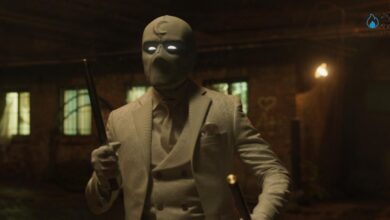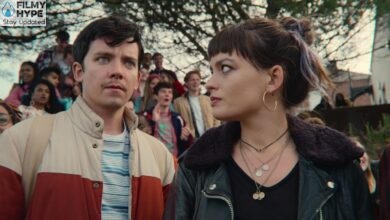The Umbrella Academy Season 4 Review: A Worthy Ending for a Series We Won’t Forget
Cast: Aidan Gallagher, Elliot Page, Tom Hopper, David Castañeda, Emmy Raver-Lampman, Robert Sheehan, Justin H. Min, Ritu Arya
Director: Jeremy Webb, Paco Cabezas, Neville Kidd
Streaming Platform: Netflix
Filmyhype.com Ratings: 4/5 (four stars)
With The Umbrella Academy Season 4, the adventure of the Hargreeves brothers comes to an end. The fourth and final season maintains the adrenaline-filled style to which we have become accustomed to the Netflix series, adding a pinch of nostalgia that pervades the narrative throughout its final six episodes. The story of Luther, Allison, Cinque, Diego, Lila, Viktor, Klaus, and Ben restarts in a timeline in which none of them have powers anymore. The Umbrella Academy no longer exists. After the events of the previous season, the Hargreeves brothers find themselves stuck in an alternate reality, following the actions of Allison, who restored the universe. Everything seems to make no sense. Or rather: after what happened, each of them tries to adapt to their new “normal” life. The enemies, however, are on their heels and intend to erase them forever from existence. The only chance of salvation is to unite, trying to overcome resentments and betrayals. Amid the chaos, the Hargreeves uncover deeper secrets within their family, as well as the true intentions of their father, Sir Reginald. With not only the salvation of the universe at stake but their power and legacy, this is a no-holds-barred showdown.
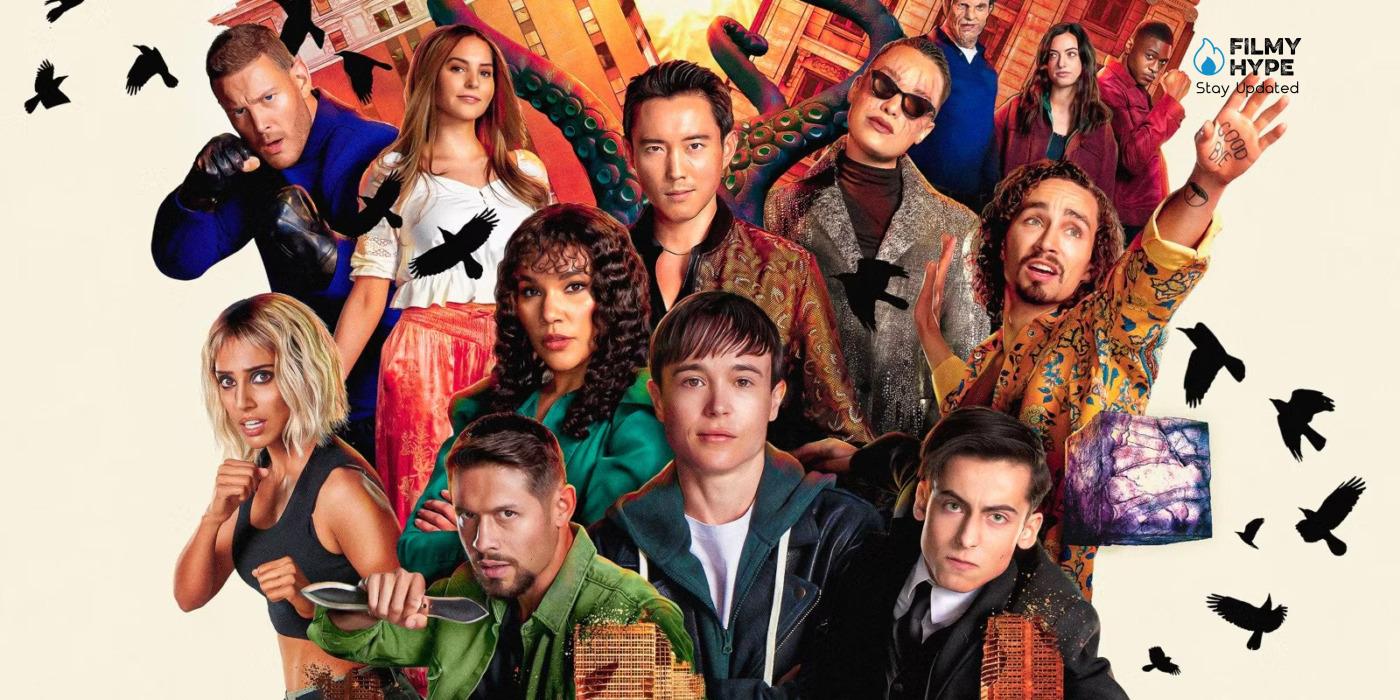
Think that the Netflix show created by Steve Blackman managed, on the occasion of its latest outing, to compete for the primacy of “views” even with a colossus like Stranger Things, whose hegemony has been challenged in the long term only a few times among serial products. But this happened two years ago, will something has changed after the delays in production due to COVID-19? How will comic book fans take a season that will necessarily distance itself from the comics, having now exhausted the cycles to adapt? Perhaps the idea of limiting itself to six episodes could help. Between these questions, the authors’ promises to have worked closely with Way and Bá, the enthusiastic reactions to the cast updates, and a crackling teaser trailer, the only certain thing is that what will be released on August 8, 2024, on the Tu Dum platform will be the final act in the story of the Hargreeves family.
The Umbrella Academy Season 4: Story Plot
After having foiled the apocalypse for the third time, ruining the Oblivion plan, the Hargreeves brothers, including Ben, find themselves safe and sound, but without powers. We leave them at the end of the last episode, all convinced that they can start over and begin a new, true, and serene life, without the burdens that their superpowers gave them. We find them again at the opening of this fourth season, six years after that moment and we discover that, each in their own way, the seven brothers have managed to build more or less lives that have nothing extraordinary but allow them to savor the “joys” (and also the boredom) of normality. But since living quiet, ordinary lives is not in their destiny, once again they will find themselves having to manage great powers and, with them, the “usual”, enormous responsibility of saving the world from yet another, impending apocalypse.
This time they will have to deal not only with the threat of total destruction but also with a sect of angry conspiracy theorists led by a bizarre couple of scientists: Gene and Jean, convinced that they are living in a world or rather in a time, that is not the right one and waiting for the fury of the apocalypse, or rather of catharsis, to put everything back in place. Even in this, yet another, timeline, the Hargreeves brothers will stumble upon the mysterious plans of their ever-relentless “father”, Sir Reginald, and each of them will find themselves facing different problems and narrative lines, with a focus on Ben’s story, which has never been told until now and which is the true heart of the last season of Umbrella Academy. All this until the reunited family finds the solution to avoid, once again, the final disaster and save the world, paying a very high price.
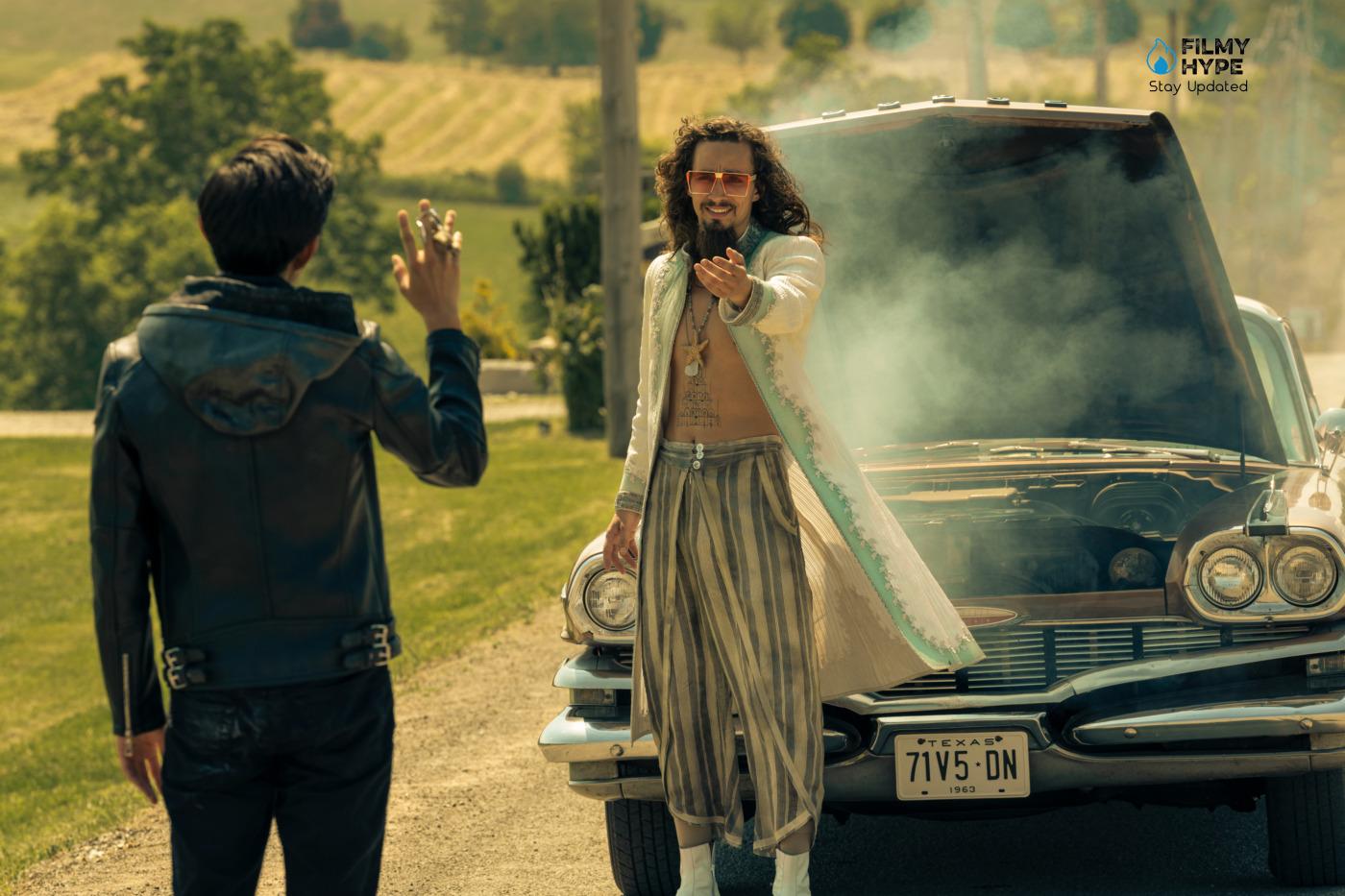
Just when they think they’ve saved the world once again and are back in the present, the Hargreeves siblings find themselves catapulted into a parallel universe. There, their beloved and dedicated father raised a new group of gifted fighters, known as the Sparrow Academy. In this new team, Number 1 is the strong Marcus (Justin Cornwell), while Number 3 is the dark and blind Fei (Britne Oldford), able to see the world through the eyes of her beloved crows. Number 4 is the deformed Alphonso (Jake Epstein), who can absorb the pain inflicted on him and give it back to his enemies. Then there’s the sweet and peaceful Sloane (Genesis Rodriguez), who has the power to manipulate gravity, and Number 6, Jayme (Cazzie David), able to weaken her opponents by making them hallucinate with her poisonous spit. And Number 7 is Christopher, a powerful telekinetic cube. Finally, Number 2 Sparrow is a familiar face to Umbrella: Ben, their late brother who in this universe is alive and well, as well as a treacherous scoundrel.
After a less-than-peaceful meeting, the siblings of The Umbrella Academy join the Sparrow Academy. As they try to prove which family is more worthy of their demanding, self-centered father, they must work together to face yet another world-ending threat posed by the mysterious Hotel Oblivion. However, the Hargreeves’ plans rarely go as planned, and after an epic clash, they end up resetting their timeline once again. In the wake of yet another Big Bang of their own making, Five (Aidan Gallagher), Luther (Tom Hopper), Viktor (Elliot Page), Klaus (Robert Sheehan), Lila (Ritu Arya), Diego (David Castañeda), Allison (Emmy Raver-Lampman) and Ben (Justin Hong-Kee Min) find themselves rebuilding their lives… without their powers. However, just when they seem to have adjusted to their lives as mere mortals, fate comes knocking on their door again, bringing with it a new crisis that threatens the end of the world.
The Umbrella Academy Season 4 Review and Analysis
Stripped of their extraordinary powers, the first episode of the fourth season, set six years after the end of the third, finds the Umbrellas in a new guise. Viktor, quiet and introverted, now owns a small and popular bar. Luther has taken up a career as a space stripper; while Diego and Lila, after getting married and starting a family, are alienated in a boring life punctuated by the commitments of their three young children. Allison has finally realized her dream of making a career in show business and seeing her sweet, now-adolescent Claire grow up. And Klaus, who lives in Allison’s basement courtesy of her, has become a sober and anxious germophobic uncle who, together with Luther, tries in vain to keep the family together, or at least what’s left of it. Finally, Five tries to make sense of his new life as a CIA employee, while attending a mysterious and dangerous support group.
But despite having lost their superpowers, courage and the desire to fight against some ruthless villain remain constant feelings in the Hargreeves, as if they were destined to save and destroy the world forever, stuck in an infinite punishing cycle of victories and defeats. However, there is something different in this season: the seven brothers, albeit with no little hesitation, once again answer the call of the universe, which asks them to put right what has been left pending since the beginning. Who with new powers and who with the old ones (regained after drinking the last jar of Marigold), the Hargreeves are therefore forced to deal with a cruel and severe destiny, which turns out to be tragically inevitable. So yes, it is necessary to save the world once again… but at what cost, now?
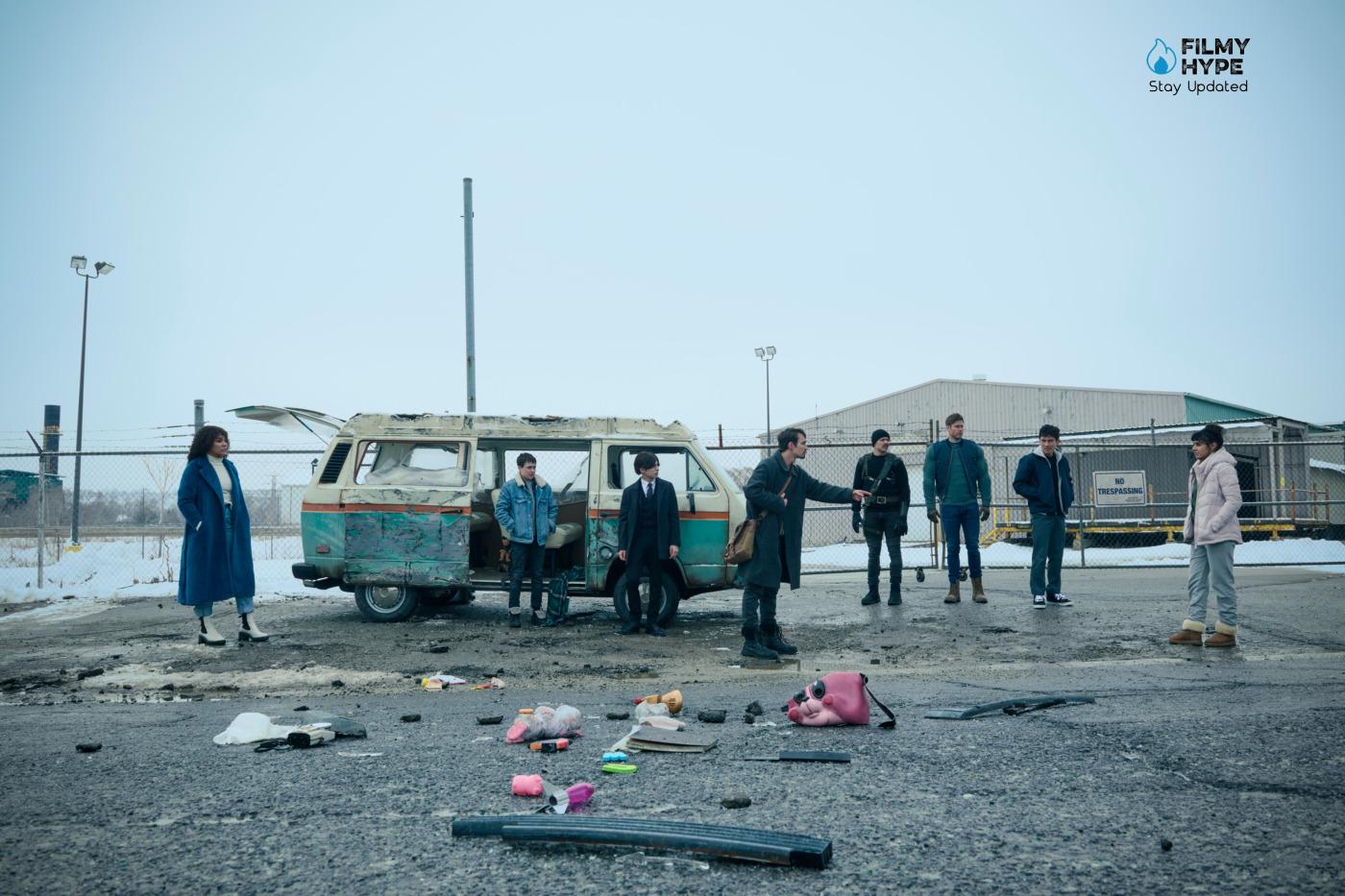
Sacrifice, destiny, and redemption are just some of the themes addressed throughout the series. However, the central theme remains that of family. The Hargreeves, beyond their extraordinary powers, are simply fragile and complex human beings who seek to be loved and to love, and to rebuild the family that Sir Reginald denied them. Their fight is not only against threatening enemies and imminent apocalypses, but also above all against their insecurities and weaknesses, against the deep fear of not being accepted for who they are and, as if that were not enough, of being alone. What connects with viewers is how hopelessly messed up and hurt they are. This group of heroes has always stood out for the broken and dysfunctional family they represent, embodying the example of so many other families in the world. Families where there are disagreements and misunderstandings, where people hurt each other and don’t listen to each other, where lies are the order of the day where resentment is fueled by silence, and where people are constantly looking for a benevolent look and approval.
Unlike many other superhero depictions, the Hargreeves are not perfect or infallible. On the contrary, their uniqueness and authenticity come from the deep emotional scars that come from a common evil: the father figure of Sir Reginald Hargreeves, an authoritarian and distant parent who treats his children more like tools and puppets to be manipulated than as individuals in need of affection and love. This realistic and complex portrayal of family is one of the main reasons why the series manages to involve and move the audience: viewers see reflected in the characters not only the heroic struggles but also the everyday dynamics of family, making The Umbrella Academy a fantastic superhero story that is deeply human and paradoxically sincere.
The Umbrella Academy is not without its flaws: many events are chaotic and confusing, and on some occasions, the plot seems driven by extravagant and nonsensical logic. Several subplots remain open and are not adequately resolved in the six often frenetic episodes of the fourth season. Furthermore, the characters, except Viktor and, in some respects, Klaus, seem to lack a real arc of evolution over the seasons. From the first to the last episode, their intentions to grow and the desire for change always seem to succumb to their inability to forgive, move on, and truly look forward. However, the tragicomic and bizarre Netflix show manages to make itself loved and, above all, to make the audience terribly fond of this ramshackle and adorable family born by chance (and by mistake). Finally, those who truly loved them will hope with all their hearts to see them one last time, in the very last minutes of episode 6, perhaps happy, in that large and lush garden. But don’t be too sad if this doesn’t happen: like all the greatest heroes, the Hargreeves sacrificed themselves to save the entire world, performing the greatest act of love and giving the audience a worthy finale to a show that undoubtedly deserves to “exist”, despite everything.
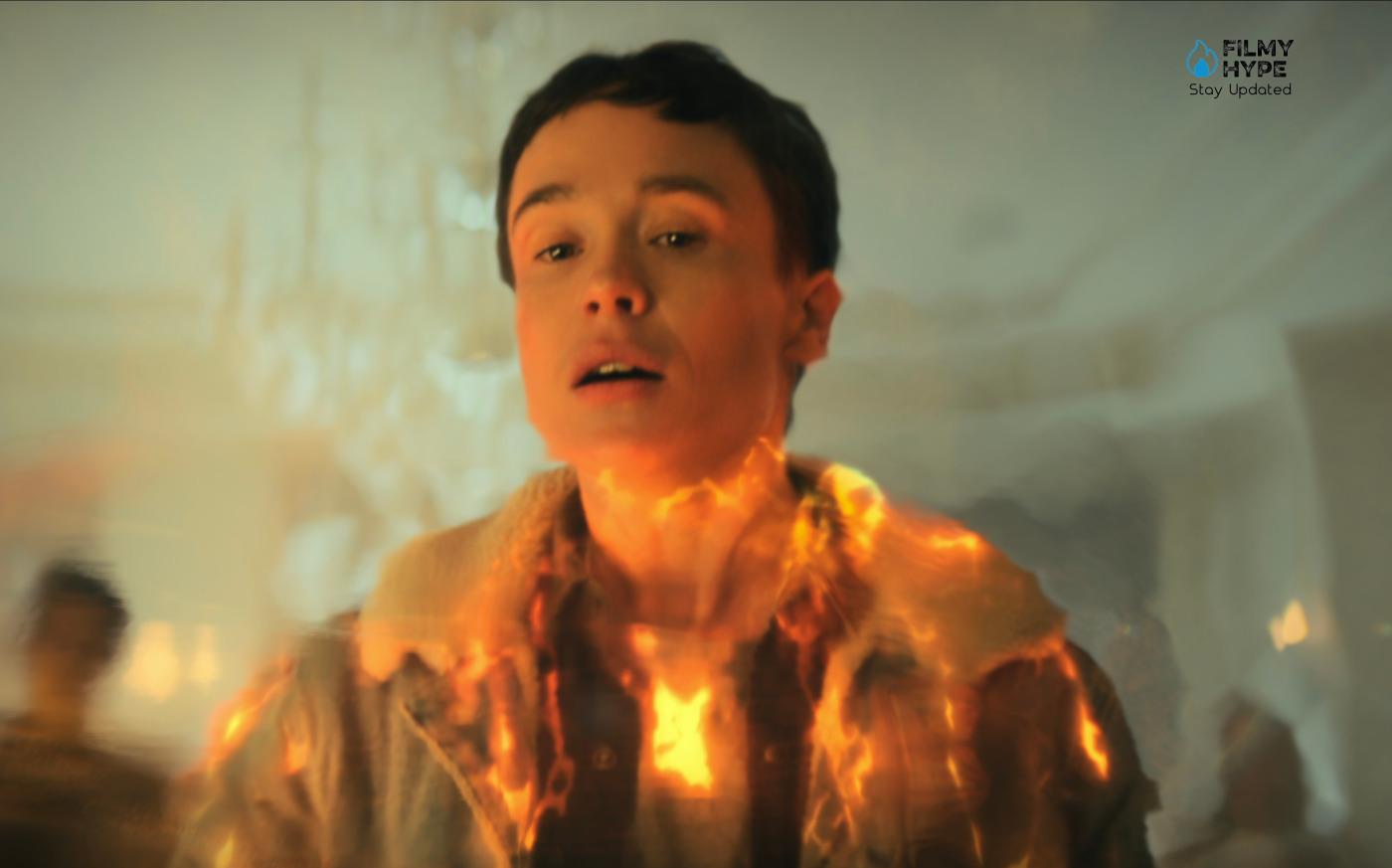
The final scene of The Umbrella Academy Season 4 is very clear: it is a series finale and the general public who have followed the incredible adventures of the seven Hargreeves brothers in recent years finds themselves faced with an outcome that leaves no room for dreams of a possible future. But it must be said that this finale is worthy of an original and compelling series, which has been able to put together many different elements, from fantasy to action, without forgetting the grotesque and ironic brush strokes. All elements that are also present in the final season of Umbrella Academy will not disappoint those who loved the previous adventures, on the contrary. The task of tying up all the threads of the plot and giving meaning to the entire series is centered, and the final solution appears consistent with all the previous events. But this final solution is not reached until after six episodes full of action, twists, and focus on complex and rigorously dysfunctional relationships, bizarre situations, and balancing acts on the edge of known reality.
With our bizarre heroes-antiheroes who continue to be told in all their oddities and fragilities. As always, in this story, the tone of irony and grotesque is also fundamental, as the use of a soundtrack that often emphasizes these nuances, without forgetting the cinephile references (especially to Tarantino, but not only, in this fourth series), and those to our contemporary reality, with the sect of the Guardians that resemble conspiracy movements like Qanon with their Kraken. We will miss the Hargreeves brothers and their fantastic and paradoxical adventures, but The Umbrella Academy Season 4 gives them, and us, a grand finale worthy of a series that has thrilled, amused, and entertained us in the best possible way. The Umbrella Academy, as a cultural product, was conceived to frame the frantic search for an order in the inner chaos of the first Millennials, the same one that from activating anguish has become over time acceptance and finally a sad awareness with the flavor of an apology. A life companion to accept, cuddle and, if possible, even indulge.
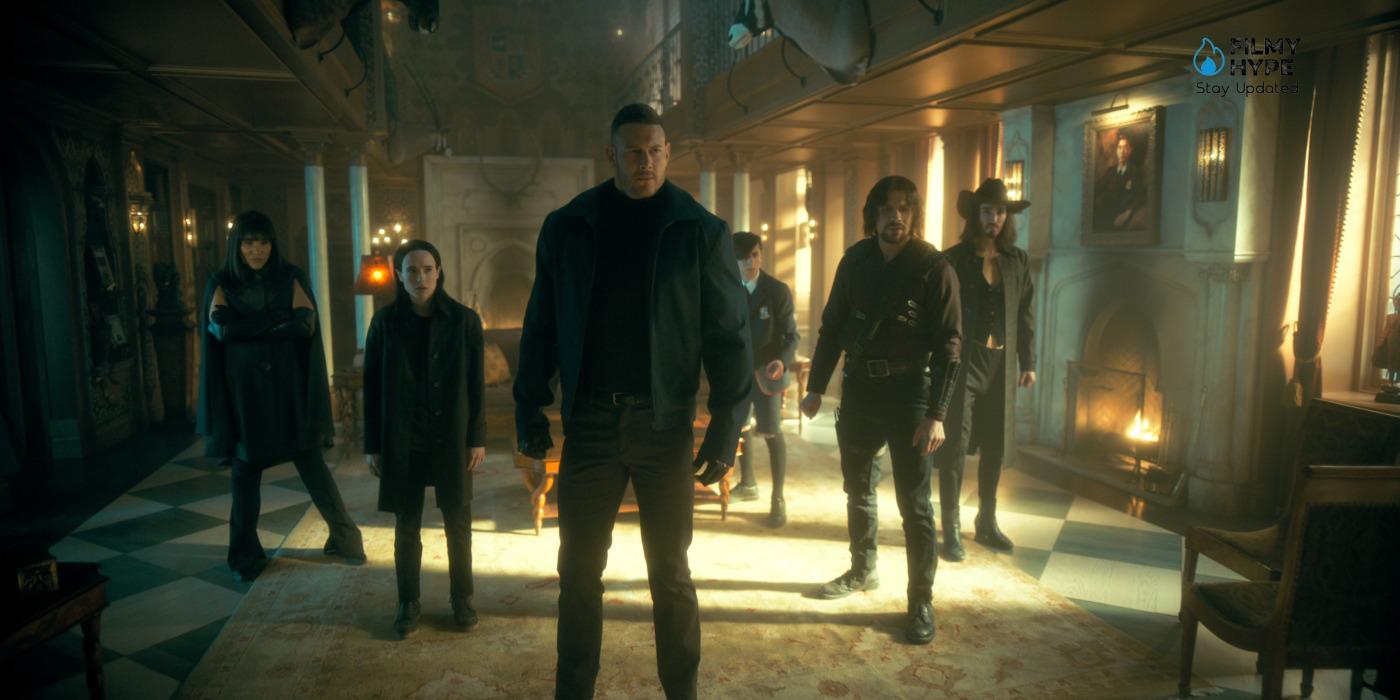
A dimension concerns the micro as well as the macro and has allowed Blackman and his associates to play with the family universe of the series by reasoning on a collective and individual level of functioning, managing to always juggle rather well in carrying forward the two branches. Also, an accomplice in this is a cast with immediately important chemistry, which has been able to welcome the new additions very well (this time there are the gentlemen Nick Offerman and David Cross) and has been able to cushion some not-so-happy transformations, first and foremost that of the character played by Tom Hooper, always in search of an author. On the shields, however, once again there is Aidan Gallagher, closely followed by David Castañeda and Ritu Arya, Robert Sheehan is subdued this time, while Emmy Raver-Lampman, Elliot Page, and Justin Hong-Kee Min do their part (with all the limitations).
The umpteenth relocation leaves some wounded, but in the end, despite the now canonical adventurous writing, everyone gets back on track and faces a world that, although looking more at our current events than in the past, has its heart in a fiction that is usually extremely derivative (Matrix, Twin Peaks, Terror from Outer Space, Akira and a bit of Cronenberg’s cinema), thus trying to find once again its positioning halfway between home video irony and B-Movie splatter, not helped by fake special effects (a malus of the series since its birth). The biggest challenge of the fourth season of The Umbrella Academy is once again trying to find the end of the family problem, to be able to conclude a parable that wants to be a metaphor for the collective journey described a couple of paragraphs above. The question that is added this time concerns the moral duty of a group of superheroes forced to save an unjust world, where diversity causes collapse and destruction, humanity is poorly tolerated, and love is only possible with an act of extreme selfishness.
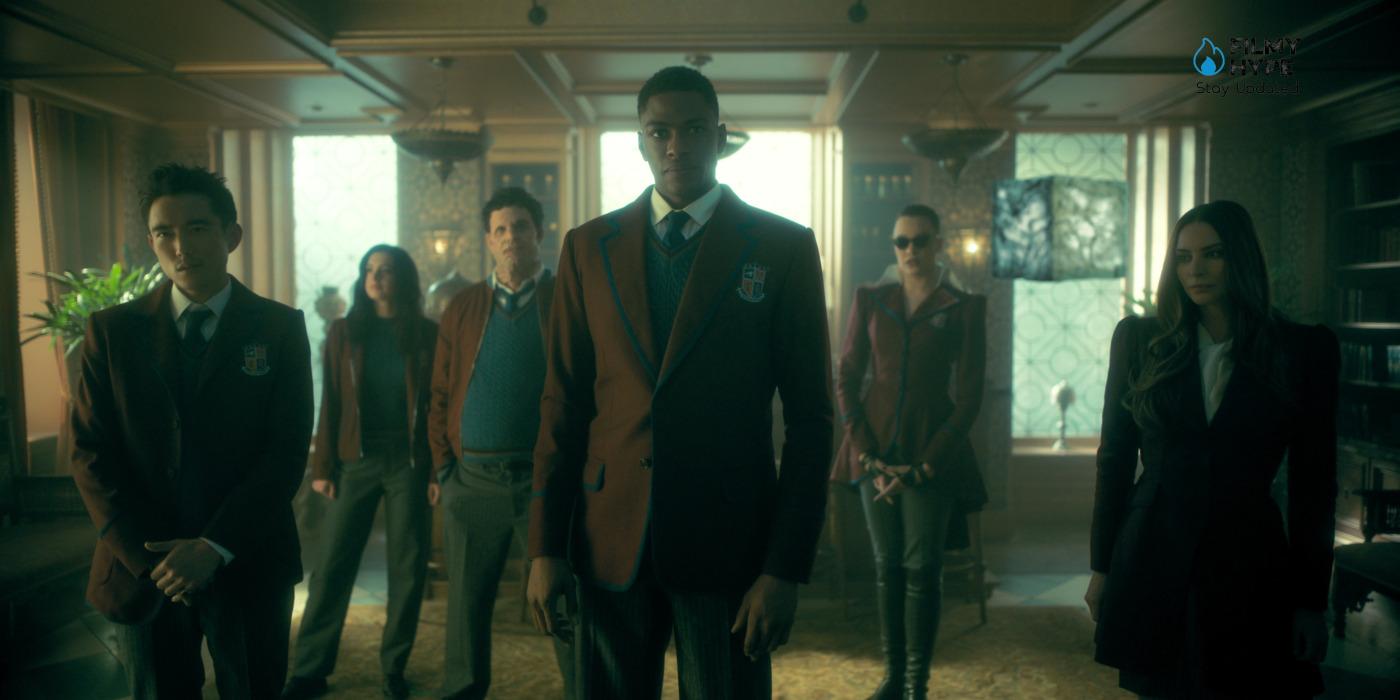
A world like this perhaps does not deserve to be saved. Maybe we do not deserve it either, we are part of it or therefore supporters. The real problem, however, is that it does not seem to be a valid alternative, despite the infinite alternatives. Depressive thoughts, but then again, what do you expect of an emo rebel who has a long face even in the morning when he has breakfast to reflect on? In the review of the fourth and final season of The Umbrella Academy, we talked about a coherent conclusion (for better or worse) to the Netflix series created by Steve Blackman and inspired by the comics by Gerard Way and Gabriel Bá. The flaws are the usual ones, both in terms of writing and staging, but the merits have evolved because, in addition to the usual game of the multiverse metaphor of the continuous family crisis of the protagonists, there is a reflection on the meaning of the apocalypse and how it has changed over time for an entire generation. The best thing about the series remains its faithfulness to the spirit of the original title.
The Umbrella Academy Season 4 Review: The Last Words
Despite some flaws, including the lack of significant development in the main characters, The Umbrella Academy still manages to captivate audiences with its tragicomic charm and dysfunctional family. The Hargreeves, with their final sacrifice, offer an act of love that fittingly concludes a series that, despite everything, deserves to be remembered. A closing that doesn’t dare, with a series of inconsistencies that are really hard to digest: if you’re looking for an ending that can give you a sense of satisfaction, change series. However, if the dysfunctional Hargreeves family made you laugh, cry, get excited, and have fun, then close this story with the last 6 episodes, and say goodbye to our boys once and for all. The Umbrella Academy is a story of superheroes at the end of the world, once again, but for different reasons that try to unite the storylines of all four seasons and with a start without powers that shows us the daily discomfort of the protagonists. Just like that of each of us to be in a world that is increasingly on the brink of collapse, without the need for climatic and geopolitical metaphors.
https://www.youtube.com/watch?v=oOFIxbotYCU





